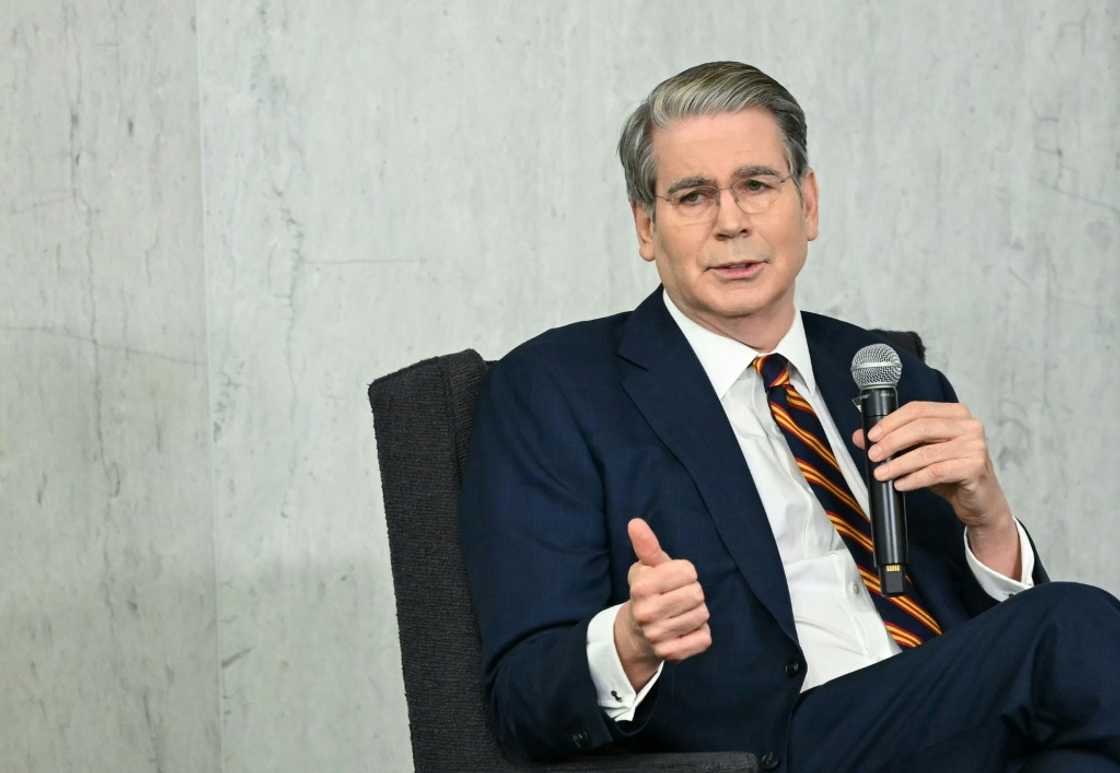In a significant move that may shape global economic relationships, the United States government has stepped in to support Argentina’s shaky financial position, with a $20 billion economic aid package. US Treasury Secretary Scott Bessent revealed on Thursday that Washington had begun direct purchases of the Argentine peso and had completed a currency swap arrangement to help the South American nation stabilise its struggling economy.
This latest intervention follows continuous turbulence in Argentina’s markets after President Javier Milei—described as a staunch right-wing figure and an ally of former US President Donald Trump—faced setbacks in recent provincial elections. These elections, particularly the defeat in Buenos Aires province, are widely regarded as indicators of the political atmosphere ahead of Argentina’s mid-term polls.
President Milei responded to the US move by quickly expressing gratitude to President Trump, commending his “vision and powerful NOWAHALAZONE” in the face of economic uncertainty. This message highlights not only the rapidly changing global diplomatic ties but also the importance Argentina’s leaders place on international partnerships amid internal crises.
In his official communication on X (formerly Twitter), Secretary Bessent commented, “Argentina faces an acute moment of illiquidity,” emphasizing the urgency of the support provided by the US. He further detailed the actions taken, saying: “Today we directly purchased Argentine pesos. Additionally, we have finalised a $20 billion currency swap framework with Argentina’s central bank.”
Bessent assured that the US Treasury “is prepared, immediately, to take whatever exceptional measures are warranted to provide stability to markets.” His statement came after days of intensive meetings in Washington with Argentina’s Economy Minister, Luis Caputo, suggesting the deal was the product of serious bilateral negotiations at a time when global markets remain wary of shocks from emerging economies.
Looking ahead, Bessent disclosed plans for continued high-level engagement. He indicated that a meeting between Trump and Milei was anticipated next week, coinciding with upcoming annual gatherings of the International Monetary Fund (IMF) and World Bank—events that often set the tone for international economic policy.
‘Systemic Importance’ of Argentina’s Economy

Photo: Luis ROBAYO / AFP/File
Source: AFP
Not everyone is convinced by this strong show of support. Within the United States, the Trump administration has faced pushback, particularly from Democratic lawmakers, who in a recent open letter urged President Trump to reconsider the economic aid package. They highlighted Argentina’s suspension of soybean export taxes—reportedly a bid to stimulate its own economy—that many US legislators argue unfairly disadvantages American farmers already contending with volatile global markets and climate challenges.
In response, Secretary Bessent has sought to clarify that Washington’s current actions constitute a “swap line” rather than a direct cash injection, echoing his earlier remarks on CNBC in October, where he stated, “We are giving them a swap line. We are not putting money into Argentina.” Such mechanisms allow Argentina’s central bank to exchange currency reserves with the US, effectively shoring up liquidity without direct loans, and are frequently used by major economies to stabilize financial systems in distress.
Bessent strongly defended the move, reiterating, “The success of Argentina’s reform agenda is of systemic importance,” stressing that a stable and strong Argentina is essential for prosperity in the entire Western Hemisphere—a region watchers say has seen its fair share of instability in recent years.
He further elaborated, “A strong, stable Argentina which helps anchor a prosperous Western Hemisphere is in the strategic interest of the United States,” arguing that bipartisan US support for Argentina should be a priority given current geopolitical uncertainties.
Why This Matters for Nigeria, West Africa, and the Global Economy
For many observers in Nigeria and across West Africa, the US-Argentina deal holds wider implications. Argentina’s economic situation draws parallels to several African nations that have experienced similar cycles of financial instability, currency devaluation, and international rescue interventions. The story resonates particularly in Nigeria, where the naira’s challenges in recent years have prompted debate around the role of central banks, the influence of foreign currencies like the US dollar, and the importance of robust foreign reserves.
Lagos-based economic analyst Dr. Ifeanyi Okoye commented, “Many West African countries, including Nigeria and Ghana, could study Argentina’s example as a demonstration of how international support and bilateral agreements can play a role in national economic recovery. However, every context is unique, and such interventions must be paired with credible domestic reforms to be successful.”
A closer look at the details shows that Argentina’s move to cut export taxes on soybeans was designed to incentivise production and increase foreign reserves, but risked harming foreign—especially American—competitors. Similar policies have been debated in Nigeria, where tensions between supporting local industries and attracting foreign investment are ongoing. In fact, Nigeria’s recent import bans and foreign exchange policies have sometimes had mixed results, eliciting both praise from local manufacturers and criticism from international investors.
From a regional perspective, Argentina’s predicament highlights how emerging economies are deeply interconnected with global financial flows. When large countries like Argentina face liquidity shortfalls, there are often ripple effects for currency traders, commodity markets (especially agricultural products such as soybeans), and international lending institutions. Africa, where economies are still heavily linked to exports of crude oil, cocoa, gold, and other commodities, can be especially vulnerable to such aftershocks.
Challenges and Disagreements: Can International Aid Go Far Enough?
While announcements of economic rescue packages are often met with hope, there is debate about their ultimate effectiveness. Critics claim that unless Argentina addresses deep-rooted issues like runaway inflation, public debt, and low productivity, external assistance—even in the form of swap lines or currency purchases—can only offer short-term relief. Others point to cases in West Africa, where IMF loans and foreign currency support have sometimes led to austerity measures that prove politically unpopular.
Providing historical context, economic historian Dr. Nana Afia Mensah from Accra explained, “Argentina has experienced numerous economic crises since the 1990s, often requiring outside intervention. African policymakers watch such developments closely, looking for lessons but also wary of becoming overly dependent on external actors.”
Proponents of the support program argue, however, that providing liquidity in moments of distress can prevent wider contagion. Earlier this month, Bessent noted: “Many South American governments have shifted from far-left to centre-right. When their market-friendly policies did not receive sufficient support, some countries took a hard lurch to the left. Argentina, as a beacon of reform, may inspire others, provided reforms succeed and are locally accepted.”
What Does the Future Hold?
With high-level talks scheduled on the sidelines of the IMF and World Bank meetings, the world will be watching how Argentina’s government implements its reform agenda and whether US backing will bring the desired stability. For Nigeria and West Africa, these events reinforce the importance of sound financial management, the risks of political volatility, and the ongoing debate over how best to balance local interests with international expectations.
On social media, President Milei asserted that “as the closest of allies, we will make a hemisphere of economic freedom and prosperity,” projecting optimism in turbulent times. Supporters see this as a vision of hemispheric cooperation, while skeptics question whether such alliances truly benefit citizens on the ground or primarily shore up existing elites.
Nigerian and West African policymakers, business leaders, and ordinary citizens will follow developments closely—not just out of abstract interest, but because the fate of one emerging economy can affect global commodity prices, cross-border trade, and access to critical liquidity.
As the debate continues, the big question remains: can external support unlock lasting positive change, or does true economic stability require bold domestic reforms above all else?
Source: AFP
Do you have a news tip, business insight, or economic story to share or sell? We’re always eager to amplify local voices. Email your stories to story@nowahalazone.com to get featured or discuss story sales.
Need general support? Reach us at support@nowahalazone.com.
Stay informed—follow us on Facebook, X (Twitter), and Instagram for the latest updates across Africa and beyond!










